Probiotics for Radiant Skin and a Balanced Gut Microbiome
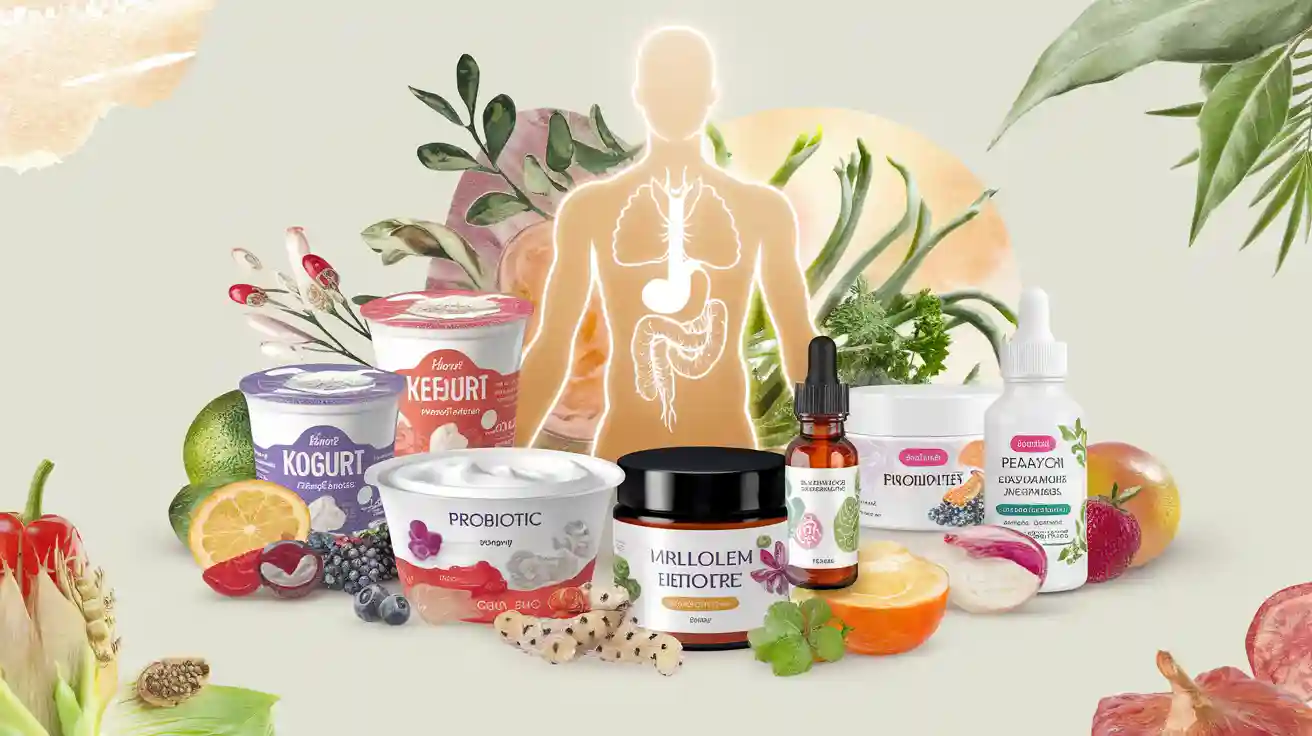
Did you know that skincare probiotics are revolutionizing the way we understand the gut-skin connection? The gut-skin axis highlights the intricate relationship between your gut microbiome and skin health. When your gut is in balance, it can help reduce inflammation, promoting calm and radiant skin. Probiotics play a vital role in maintaining this balance, restoring harmony in your gut and enhancing your skin's natural glow. Research shows that disruptions in gut bacteria can contribute to skin concerns like acne and rosacea. By nurturing the gut-skin axis, probiotics for skin provide a natural and effective approach to achieving healthy, vibrant skin.
Key Takeaways
Probiotics keep your gut and skin healthy and glowing.
Eating foods like yogurt and kimchi can help with acne and eczema.
Probiotic skincare products make your skin stronger and less irritated.
Using probiotics can often keep your skin soft and resilient
Talk to a dermatologist before using probiotics to check if they are right for you.
Understanding Skincare Probiotics and the Gut-Skin Axis
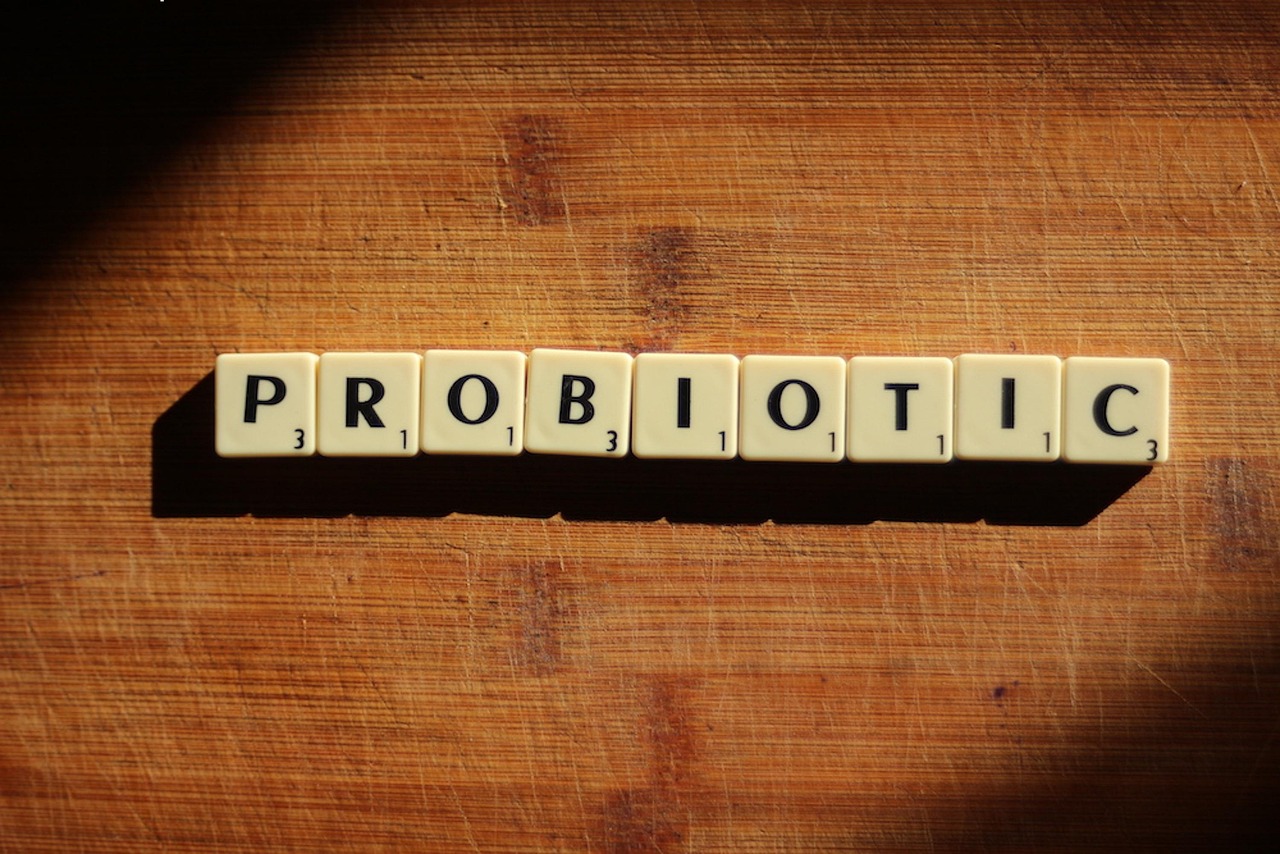
What Are Probiotics?
Probiotics are tiny living organisms that help your body stay healthy. They are like helpful bacteria that keep things balanced inside you. Most people know probiotics help with digestion, but they do much more. These good bacteria fix problems in your gut microbiome, which is the group of tiny organisms living in your stomach.
For your skin, probiotics are important for keeping it balanced. This balance helps stop problems like acne, eczema, or dry skin. You can take probiotics by eating them or using them on your skin. Both ways can make your skin healthier by calming irritation and boosting its defenses.
In simple terms, probiotics are like tiny heroes. They work quietly to keep your gut and skin healthy.
The Gut-Skin Connection and Its Impact on Skin Health
Have you noticed your skin changes when you eat poorly or feel stressed? That’s because your gut and skin are connected. The gut-skin axis is how your gut and skin communicate. A healthy gut often means glowing skin. But if your gut is unbalanced, it can cause skin issues like acne or eczema.
Here’s how it works:
A healthy gut helps keep your skin soft and supple.
Problems in digestion can cause redness, congestion, or acne.
A condition called leaky gut can exacerbate skin problems.
This idea isn’t new. In the 1930s, doctors Stokes and Pillsbury said gut health, emotions, and skin are linked. Today, science agrees that an unhealthy gut can cause skin inflammation.
By taking care of your gut with probiotics, you help your skin shine and stay healthy. It’s great for your whole body!
How Do Probiotics Improve Skin?
Reducing Inflammation and Oxidative Stress
Skin problems like redness and pimples often come from inflammation. Probiotics can help calm your skin by reducing inflammation and protecting against damage. These tiny helpers balance your skin's bacteria and stop bad germs from growing. For example, probiotics like lactic acid bacteria can block acne-causing germs like Propionibacterium acnes. This helps reduce redness and lets your skin heal.
Probiotics are also great at fighting harmful molecules called free radicals. Free radicals can damage your skin cells and accelerate the aging process. Some probiotics, like Lactobacillus reuteri RP100, are potent antioxidants. They protect your skin from damage. Check out the table below to see how probiotics fight oxidative stress:
Probiotic Strain |
DPPH Activity (%) |
ABTS Activity (%) |
Hydroxyl Radical Scavenging (%) |
Superoxide Anion Assay (%) |
Lipid Peroxidation Inhibition (%) |
|---|---|---|---|---|---|
Bifidobacterium longum RP1044 |
52.33 |
50.33 |
50.2 |
N/A |
53 |
Lactobacillus reuteri RP100 |
72.67 |
66.67 |
70 |
68 |
65 |
Bifidobacterium bifidum RP1001 |
N/A |
N/A |
50 |
N/A |
N/A |
By calming inflammation and stopping damage, probiotics make your skin healthier and brighter.
Strengthening the Skin Barrier and Enhancing Hydration
Your skin barrier is like a shield that keeps bad stuff out. When it gets weak, your skin can become dry, itchy, and easily hurt. Probiotics can make this barrier stronger by improving the bacteria on your skin and keeping it hydrated.
Some probiotics, such as Lactobacillus acidophilus and Lactobacillus rhamnosus, help keep your skin moist and supple. They also help your body make proteins like claudin-1 and occludin, which keep your skin barrier strong. Here's a simple table showing how probiotics help your skin:
Probiotic Strain |
Benefit |
|---|---|
Lactobacillus |
Adds moisture and strengthens the barrier |
Lactobacillus acidophilus |
Improves hydration and makes skin elastic |
Lactobacillus rhamnosus |
Protects the barrier and stops water loss |
Claudin-1 and Occludin |
Builds proteins for a strong skin shield |
In one study, a lotion containing VHProbi Mix R improved skin strength and reduced irritation within 30 days. Adding probiotics to your routine can keep your skin soft, full, and protected.
Managing Acne and Balancing Oil Production
Dealing with acne can be really frustrating. Probiotics offer a natural way to reduce breakouts and control oily skin. They improve gut health, lower inflammation, and fix your skin barrier. This makes it harder for acne-causing bacteria to grow.
Research shows that probiotics, such as Lactobacillus acidophilus and Bifidobacterium breve, can help make acne less severe. For example, a study in South Korea found that 54% of people had fewer pimples after taking probiotics for 12 weeks. Another study showed that Lactobacillus fermentum lowered oil production by 24% in just four weeks.
Here are some significant results:
Taking Lactobacillus acidophilus for 12 weeks reduced all types of acne.
Lactobacillus rhamnosus SP1 helped reduce acne spots after 12 weeks.
Probiotics help lower oil levels and strengthen the skin barrier, which can help prevent future breakouts.
By balancing your skin's bacteria and controlling oil, probiotics help you get clearer, healthier skin.
Supporting Skin Elasticity and Youthfulness
Ever wonder why some people have firm, youthful skin? The answer might be probiotics. These tiny helpers don’t just aid your gut—they also keep your skin smooth and stretchy. Let’s see how they work.
Probiotics help your skin by increasing collagen. Collagen is a protein that keeps skin firm and soft. As you get older, your body makes less collagen. This can cause wrinkles and sagging. Probiotics like Lactiplantibacillus plantarum can boost collagen and improve skin elasticity. In one study, people who used this probiotic for 12 weeks had fewer wrinkles and glowing, hydrated skin.
Here’s a simple table showing how probiotics help skin elasticity:
Study |
Findings |
|---|---|
Anti-skin-aging effect of LactoSporin |
Stops UV wrinkles, boosts collagen, and thickens skin. Fewer wrinkles in participants. |
Aging Skin: Can Probiotics Help? |
Lactiplantibacillus plantarum improved hydration, glow, elasticity, and reduced wrinkles in 12 weeks. |
Probiotics also protect your skin from harm. Things like pollution, sunlight, and stress can weaken your skin. This makes it dull and age faster. Probiotics strengthen your skin’s barrier and fight harmful molecules called free radicals.
Adding probiotics to your routine is easy and helpful. You can eat probiotic-rich foods, take supplements, or use skincare products with probiotics. These give your skin what it needs to stay firm, hydrated, and bright. If you want a natural way to keep your skin youthful, probiotics are a great choice!
Skin Problems Helped by Probiotics
Acne and Pimples
Dealing with acne can feel never-ending, but probiotics can help. These tiny organisms balance your skin's bacteria and reduce swelling. When your skin's bacteria are unbalanced, bad bacteria like Propionibacterium acnes can grow and cause pimples. Probiotics add good bacteria to push out the bad ones.
Studies show probiotics work well for acne. For example, Jung et al. (2013) found a 67% drop in acne spots with probiotics. Another study by Kim et al. (2010) showed a 30% decrease in red, swollen pimples after 12 weeks of probiotics. These studies show that probiotics can make acne less severe and occur less often.
Here’s a summary of the findings:
Study |
Results |
|---|---|
Jung et al. (2013) |
67% fewer acne spots with probiotics compared to medicine, with fewer side effects. |
Kim et al. (2010) |
30% drop in red pimples and less oil after 12 weeks. |
Fabbrocini et al. (2016) |
32% less back acne and better skin health using Lactobacillus rhamnosus GG. |
Siver (1961) |
80% of people saw better skin with probiotics. |
Probiotics lower oil and calm redness, helping your skin stay clear.
Eczema and Skin Irritation
Eczema can be itchy and annoying, but probiotics can help alleviate the symptoms. They improve your skin's bacteria and reduce redness. Probiotics also make your skin stronger, so irritants can’t cause flare-ups as easily.
Studies show probiotics can ease eczema symptoms. For example, Matsumoto et al. (2014) found that probiotics reduced itching and improved quality of life for adults with eczema. Another study by Kaur et al. (2008) showed probiotics and moisturizers worked well together for mild eczema.
Key study results include:
Matsumoto et al. (2014): Less itching and better life quality with probiotics.
Kaur et al. (2008): Probiotics and moisturizers helped mild eczema.
Drago et al. (2012): Lower IgE levels and better eczema symptoms.
Fang et al.: Lower SCORAD scores and better gut bacteria after 8 weeks of Lactobacillus plantarum CCFM8610.
Probiotics can improve eczema in 8 to 24 weeks. Adding them to your routine can calm your skin naturally.
Dry Skin and Lack of Moisture
Dry, flaky skin can feel rough and look dull. Probiotics can help by keeping your skin hydrated and strong. They improve your skin's bacteria, which helps lock in moisture. A healthy microbiome keeps your skin soft and smooth.
Some probiotics, like Lactobacillus plantarum HY771439, boost hydration and make skin more elastic. This probiotic also helps reduce wrinkles, making your skin look younger.
Probiotic |
Benefits |
|---|---|
Lactobacillus plantarum HY771439 |
- Adds moisture - Reduces wrinkles - Improves elasticity |
A strong skin barrier keeps moisture in and blocks irritants. Probiotics help your body make proteins like claudin-1 and occludin, which strengthen this barrier. This means less dryness and a glowing complexion.
If you have dry skin, try adding probiotics to your diet or skincare. They nourish your skin from within, giving it a healthy, hydrated look.
Rosacea and Sensitive Skin
Dealing with rosacea or sensitive skin can be tough. The redness, irritation, and sudden flare-ups can make your skin feel bad and look uneven. But there’s good news—probiotics might help calm your skin.
Rosacea may occur due to excessive inflammation and an overactive immune system. Probiotics can lower inflammation by reducing molecules called pro-inflammatory cytokines. They also teach your body to react less strongly to harmless things. This means fewer flare-ups and smoother, calmer skin.
Sensitive skin often has a weak barrier that allows irritants to enter. This can cause redness and discomfort. Probiotics help by strengthening your skin barrier. They help your skin hold moisture and block irritants, so it feels less sensitive and more protected.
Some probiotics, such as Nitrobacter, Lactobacillus, and Bifidobacterium, are beneficial for rosacea. These good bacteria lower inflammation and fight harmful molecules that make redness worse. They also balance your skin’s microbiome, helping good bacteria grow and bad bacteria go away.
Here’s how probiotics help rosacea and sensitive skin:
Lower inflammation by reducing harmful molecules.
Teach your immune system to stay calm.
Strengthen your skin barrier to block irritants.
Fight redness with antioxidative benefits.
Balance your skin’s bacteria for healthier skin.
You can add probiotics to your routine by eating foods like yogurt or kefir, taking supplements, or using probiotic skincare products. Over time, you’ll likely see less redness, fewer flare-ups, and smoother skin. Probiotics are a natural way to care for your skin and keep it healthy.
How to Use Probiotics for Skin Health
Eating Foods with Probiotics
Adding probiotics to your meals is simple and helpful for your skin. These good bacteria are found in many tasty fermented foods. Here are some great options:
Yogurt: A creamy snack with Lactobacillus johnsonii that protects skin from sun damage.
Sauerkraut: A sour dish full of probiotics that help your gut and skin.
Kimchi: A spicy Korean food with Lactobacillus paracasei, which calms sensitive skin and helps it heal.
Kefir: A tangy drink packed with probiotics to keep your skin moist and balanced.
Eating these foods helps your gut and improves skin issues like acne, eczema, and rosacea. If you want a natural way to care for your skin, start by adding these to your diet!
Taking Probiotic Supplements
If you don’t like fermented foods, probiotic pills are another option. These pills provide your body with lots of good bacteria, which can help improve your skin. Studies show that probiotics like Enterococcus faecalis and Escherichia coli Nissle can reduce acne and swelling.
For example:
Using Enterococcus faecalis on the skin lowered acne spots.
Combining Escherichia coli Nissle with a healthy diet improved acne.
These studies show probiotics can work as well as medicines like antibiotics. When picking a supplement, choose one with strains that help skin. Follow the instructions and ask a doctor if you’re unsure.
Using Probiotic Skincare Products
Probiotic skincare items are great for keeping your skin healthy. These products apply probiotics directly to your skin to balance the bacteria and protect it.
Here’s what they do:
Benefit |
How It Helps |
|---|---|
Blocks harmful germs and keeps your skin hydrated. |
|
Reduces Inflammation |
Soothes redness and helps with acne or eczema. |
Boosts Immune Response |
Helps your skin fight harmful bacteria. |
These products also stop bad bacteria from sticking to your skin. They lower your skin’s pH, making it harder for harmful germs to grow.
To try them, look for cleansers, serums, or creams labeled as probiotic. These are easy ways to use probiotics for glowing, healthy skin.
Best Probiotics for Skin
Lactobacillus Strains for Skin Health
Lactobacillus probiotics are great for improving your skin. They help keep skin hydrated, reduce redness, and promote collagen production. For example, Lactobacillus plantarum GMNL6 can improve skin texture and boost collagen production. After two months, people noticed smoother skin, fewer wrinkles, and lighter UV spots.
A study found Lactobacillus rhamnosus GG helps wounds heal faster. It does this by moving skin cells to repair damaged areas.
If your skin feels dry or irritated, Lactobacillus can help fix it. These probiotics also fight bad bacteria, which helps with acne and swelling. Adding them to your routine can make your skin feel calm, soft, and refreshed.
Bifidobacterium Strains for Skin Benefits
Bifidobacterium probiotics are great for sensitive or itchy skin. They can help with conditions like eczema and dry skin. Studies show babies given Bifidobacterium had a lower chance of getting eczema than those who didn’t.
Study Type |
Results |
Group |
Time Frame |
|---|---|---|---|
Clinical Trial |
Babies |
2 years |
|
Meta-analysis |
Lower chance of atopic dermatitis |
Various |
N/A |
Recent Study |
Less eczema risk in high-risk babies |
241 moms and babies |
Up to 2 years |
Bifidobacterium also makes your skin barrier stronger. This keeps moisture in and blocks irritants. If you have flaky or dry skin, these probiotics can really help.
Streptococcus Thermophilus and Other Helpful Strains
Streptococcus thermophilus is another great probiotic for skin. It increases ceramides, which keep your skin hydrated and strong. In one study, older women using Streptococcus thermophilus cream had better hydration and stronger skin barriers.
Study Focus |
Results |
Conclusion |
|---|---|---|
Streptococcus thermophilus and ceramides |
Higher ceramide levels after use |
Better hydration and firmer skin in older women |
Other probiotics, such as Bacillus coagulans and Staphylococcus epidermidis, also help keep your skin healthy. Bacillus coagulans helps fight aging signs, while Staphylococcus epidermidis prevents harmful bacteria from growing. Together, these probiotics keep your skin healthy and glowing.
Risks and Precautions When Using Probiotics for Skin
Possible Side Effects and Allergic Reactions
Probiotics are usually safe, but they might cause mild issues. Some people may feel bloated or gassy, especially if they’re lactose-intolerant and the probiotics have lactose. Rarely, probiotics can cause skin rashes or itching. For instance, some users in a study reported itchy skin after using probiotics.
If you have allergies, always check the ingredients in probiotic products. Some may include dairy, soy, or eggs, which could trigger reactions. Avoid yeast-based probiotics if you’re allergic to yeast. Probiotics can also produce histamine, which may not be suitable for people with histamine intolerance.
Interestingly, probiotics can also help certain skin problems. One example is a person with long-term contact dermatitis who improved after using a special probiotic. This shows that while probiotics might cause reactions, they can also heal skin issues.
Tips for Using Probiotics Safely
To use probiotics safely, start slowly so your body can adjust. Choose products labeled as hypoallergenic or free from common allergens like gluten, soy, or dairy. If you’re trying a probiotic cream, test it first. Put a small amount on your wrist or behind your ear and wait 24 hours to see if there’s a reaction.
Probiotics can improve your skin by calming redness and irritation. They also strengthen your skin’s barrier, keeping it smooth and hydrated. Probiotics encourage good bacteria and reduce bad ones, which helps prevent acne. Experts suggest using moisturizers with probiotics or prebiotics to support your skin’s health and protect it from damage.
Talk to a Dermatologist or Doctor
Before adding probiotics to your skincare routine, ask a dermatologist or doctor for advice. They can recommend the best probiotics for your skin type and concerns. If you have allergies or health issues, professional guidance is even more important. A dermatologist can also help you decide between probiotic foods, supplements, or creams.
Everyone’s skin is unique. What works for one person might not work for another. Talking to an expert ensures you choose the safest and most effective option for your skin.
Probiotics are amazing for your skin and stomach health. They balance your body's bacteria, which lowers swelling, strengthens your skin, and keeps it hydrated. This link between your gut and skin is important for glowing, healthy skin. Studies show that probiotics like Lactobacillus plantarum and Bifidobacterium longum can help prevent harmful swelling and aid in skin healing.
Using probiotics is easy. You can eat foods with probiotics, take pills, or use skincare with probiotics. For instance, some products mix probiotics with ceramides to keep your skin healthy over time. When you use probiotics, you’re helping your skin from the inside out.
Why not try skincare probiotics and enjoy their benefits? A healthy gut can give you bright, youthful skin and improve your overall health.
FAQ
What foods have probiotics?
Probiotics are in fermented foods like yogurt, kefir, and kimchi. Sauerkraut and miso also have good bacteria. These foods help your gut and skin stay healthy. Add them to meals for a natural health boost.
Do probiotics help sensitive skin?
Yes, probiotics can calm sensitive skin. They lower redness and irritation. Probiotics also make your skin barrier stronger. Eat probiotic foods or use skincare with probiotics for soothing effects.
How long before probiotics show results?
You may see small changes within a week. Bigger improvements happen after 8-12 weeks. Keep using probiotics regularly to help your skin and gut adjust.
Are probiotic skincare products safe for everyone?
Most probiotic skincare works for all skin types. This includes oily, dry, and sensitive skin. Check for allergens and test on a small area first to be sure.
Can I use probiotics with skin medicine?
Probiotics can work with many skin treatments. Ask your dermatologist before combining them. They can help you use probiotics safely with your current routine.
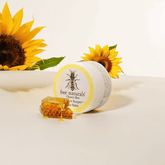

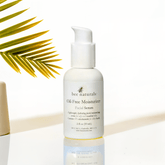

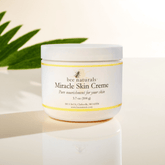


Leave a comment
Please note, comments need to be approved before they are published.